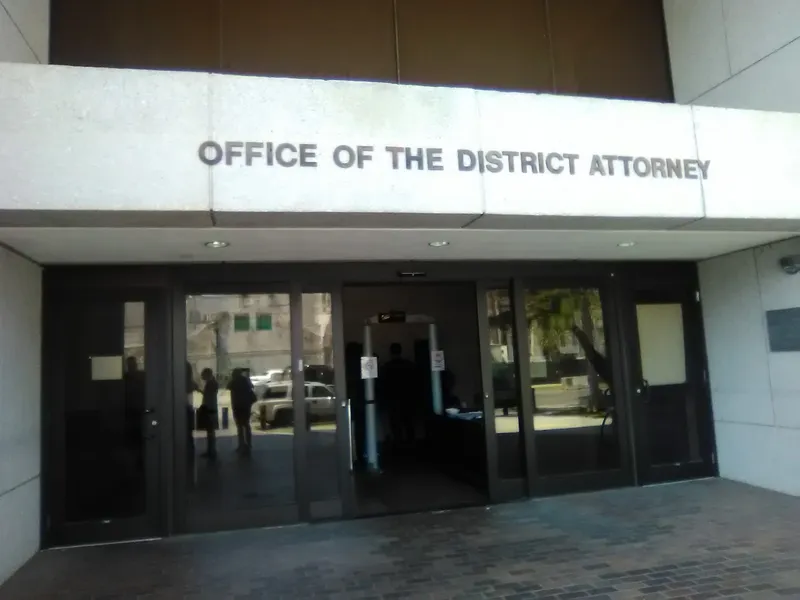
Something fishy is going on at the Criminal District Court. That's an understatement; something is deeply wrong, and it carries a huge public safety risk. From everything I’ve heard, the most accurate representation of what's happening in our court system is that we're experiencing a complete bastardization of the notions of fairness and justice.
I spoke about this issue recently with Rafael Goyeneche, president of the Metropolitan Crime Commission (MCC), about a slew of cases in particular sections of the courts that were yielding a high number of non-guilty verdicts.
Goyenehce’s findings were disturbing. To expand on these findings, I spoke with Laura Cannizzaro Rodrigue, former Orleans Parish prosecutor and founder of watchdog group Bayou Mama Bears.
Rodrigue has been busy with her own research, reviewing court transcripts, and what she’s found is wildly alarming. And she brings receipts to prove it.
So, what’s going on?
Rodrigue explains, “It's really one of the most bizarre things most of us have ever seen happen in Orleans Parish Criminal Court. And you know that's a high bar to say that coming out of Orleans Parish…I don't think anybody has seen anything like this.”
What’s come to light is that certain Criminal District Courts are running fake trials. Essentially, judges are rendering verdicts for criminal trials that feature no witness testimonies, no officer testimonies, and no evidence.
Rodrigue tells me, “The fact that the MCC found sixteen of these in just one section of court over a nine-month period has everybody extremely shocked.”
“For people who don't understand or haven't had any experience in criminal court,” Rodrigue explains, “...typically, when a case is accepted, there will be notifications given to all the officers on the case….They'll get multiple notifications a week of various cases. That’s the way it has always worked over the decade I was there…You would call an officer beforehand for many reasons. But first of all, you want to prepare them. You want to give them a copy of their report to review the case…You say, ‘Hey, look, this is going to trial tomorrow. Can you be there at this time?’”
But officers aren’t receiving notifications. Rodrigue explains, “There's no communication going on. No telling the officer you should be there or you need to be in court... They simply have the guy or girl's name called in the hallway, and then say, ‘The officer didn’t show up. I rest my case…”
“In some of the cases,” Rodrigue continues, “they're calling the victim's name and the victim's not answering, so they rest their case. It's very, very strange behavior of really what we're seeing: fake trials.”
Why are these fake trials happening? And how could a court possibly deem this as fair?
Rodrigue tells me, “The only reason you would do that is because you don't want to be the one who dismisses the case. You want the judge to render a not-guilty verdict. Then it's much easier to say, ‘Look, the judge did that. I went to trial. The judge gave a not-guilty verdict.’ But the reality when you get the transcript is, no, you didn't go to trial. That's not a trial.”
“Rafael Goyaneche pointed out that, in some of these cases, no witness was ever sworn in," Rodrigue continues. "And so Jeopardy hasn't even been attached in these cases. That trial didn't even happen. It’s not a real trial.”
As a result, many people who likely belong in prison now walk free. As Rodrigue explains, “One of the last transcripts I saw involved domestic abuse strangulation and the guy had also violated a protective order against the same woman shortly before that.”
According to the transcripts, during the trial, “They call her name in the hall. No answer. They call the officer’s name. No answer. Not guilty. Remove his ankle monitor. You're free to go.”
“One of the people who got a not guilty,” Rodrigue continues, “was re-arrested for being in possession of a stolen gun while in possession of drugs just weeks after the not guilty verdict came out. I mean, it's really shocking. And remember, we're only talking about these are just the facts of 16. Who knows how many there are and what the ramifications have been of that? Who knows, many of those domestic abusers went out to further perpetrate more violence against some of the females?”
Now, the question requiring further investigation is who developed this scheme? Who came up with this formula of getting to their preferred verdict without doing the work? Who's all in on it? Who needs to be disbarred? And will there be any action on the part of the Louisiana Supreme Court to address this?
The next steps are still unclear. But Rodrigue explains that, first, any case where a witness was never sworn in should automatically be brought back into the criminal court system on legal grounds.
She also shares her thoughts on where this is headed, saying, “You will have to have some sort of review here. I cannot see how the Supreme Court will glaze over that. The other question that's becoming front and center is: How many more times did this happen in how many sections of courts? I mean, do we have any way of finding this out? Are we going to have to dig through every transcript of every not-guilty case that came out of this administration? How long has this been happening?”

